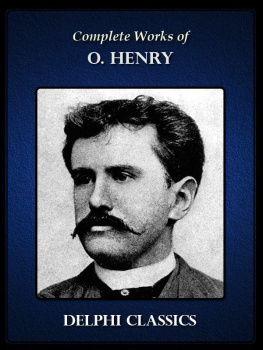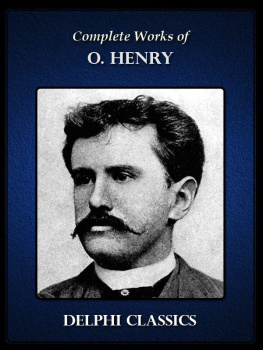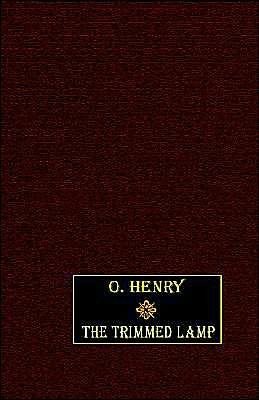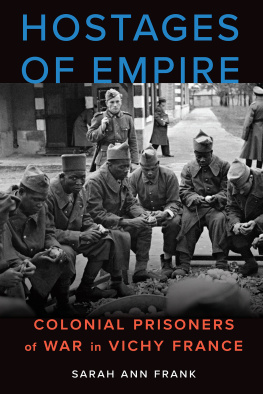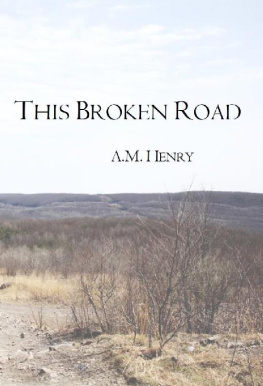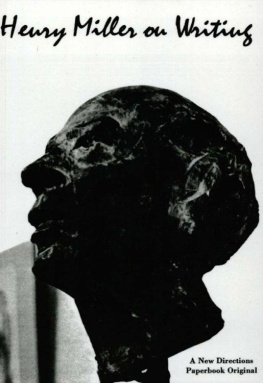O. Henry - Hostages to Momus
Here you can read online O. Henry - Hostages to Momus full text of the book (entire story) in english for free. Download pdf and epub, get meaning, cover and reviews about this ebook. year: 1919, genre: Prose / Humor. Description of the work, (preface) as well as reviews are available. Best literature library LitArk.com created for fans of good reading and offers a wide selection of genres:
Romance novel
Science fiction
Adventure
Detective
Science
History
Home and family
Prose
Art
Politics
Computer
Non-fiction
Religion
Business
Children
Humor
Choose a favorite category and find really read worthwhile books. Enjoy immersion in the world of imagination, feel the emotions of the characters or learn something new for yourself, make an fascinating discovery.

Hostages to Momus: summary, description and annotation
We offer to read an annotation, description, summary or preface (depends on what the author of the book "Hostages to Momus" wrote himself). If you haven't found the necessary information about the book — write in the comments, we will try to find it.
Hostages to Momus — read online for free the complete book (whole text) full work
Below is the text of the book, divided by pages. System saving the place of the last page read, allows you to conveniently read the book "Hostages to Momus" online for free, without having to search again every time where you left off. Put a bookmark, and you can go to the page where you finished reading at any time.
Font size:
Interval:
Bookmark:
O. Henry
The Gentle Grafter
Hostages to Momus
I never got inside of the legitimate line of graft but once. But, one time, as I say, I reversed the decision of the revised statutes and undertook a thing that I'd have to apologize for even under the New Jersey trust laws.
Me and Caligula Polk, of Muskogee in the Creek Nation, was down in the Mexican State of Tamaulipas running a peripatetic lottery and monte game. Now, selling lottery tickets is a government graft in Mexico, just like selling forty-eight cents' worth of postage-stamps for forty-nine cents is over here. So Uncle Porfirio he instructs the rurales to attend to our case.
Rurales? They're a sort of country police; but don't draw any mental crayon portraits of the worthy constables with a tin star and a gray goatee. The ruraleswell, if we'd mount our Supreme Court on broncos, arm 'em with Winchesters, and start 'em out after John Doe et al. we'd have about the same thing.
When the rurales started for us we started for the States. They chased us as far as Matamoras. We hid in a brickyard; and that night we swum the Rio Grande, Caligula with a brick in each hand, absent-minded, which he drops upon the soil of Texas, forgetting he had 'em.
From there we emigrated to San Antone, and then over to New Orleans, where we took a rest. And in that town of cotton bales and other adjuncts to female beauty we made the acquaintance of drinks invented by the Creoles during the period of Louey Cans, in which they are still served at the side doors. The most I can remember of this town is that me and Caligula and a Frenchman named McCartywait a minute; Adolph McCartywas trying to make the French Quarter pay up the back trading-stamps due on the Louisiana Purchase, when somebody hollers that the johndarms are coming. I have an insufficient recollection of buying two yellow tickets through a window; and I seemed to see a man swing a lantern and say "All aboard!" I remembered no more, except that the train butcher was covering me and Caligula up with Augusta J. Evans's works and figs.
When we become revised, we find that we have collided up against the State of Georgia at a spot hitherto unaccounted for in time tables except by an asterisk, which means that trains stop every other Thursday on signal by tearing up a rail. We was waked up in a yellow pine hotel by the noise of flowers and the smell of birds. Yes, sir, for the wind was banging sunflowers as big as buggy wheels against the weatherboarding and the chicken coop was right under the window. Me and Caligula dressed and went down-stairs. The landlord was shelling peas on the front porch. He was six feet of chills and fever, and Hongkong in complexion though in other respects he seemed amenable in the exercise of his sentiments and features.
Caligula, who is a spokesman by birth, and a small man, though red-haired and impatient of painfulness of any kind, speaks up.
"Pardner," says he, "good-morning, and be darned to you. Would you mind telling us why we are at? We know the reason we are where, but can't exactly figure out on account of at what place."
"Well, gentlemen," says the landlord, "I reckoned you-all would be inquiring this morning. You-all dropped off of the nine-thirty train here last night; and you was right tight. Yes, you was right smart in liquor. I can inform you that you are now in the town of Mountain Valley, in the State of Georgia."
"On top of that," says Caligula, "don't say that we can't have anything to eat."
"Sit down, gentlemen," says the landlord, "and in twenty minutes I'll call you to the best breakfast you can get anywhere in town."
That breakfast turned out to be composed of fried bacon and a yellowish edifice that proved up something between pound cake and flexible sandstone. The landlord calls it corn pone; and then he sets out a dish of the exaggerated breakfast food known as hominy; and so me and Caligula makes the acquaintance of the celebrated food that enabled every Johnny Reb to lick one and two-thirds Yankees for nearly four years at a stretch.
"The wonder to me is," says Caligula, "that Uncle Robert Lee's boys didn't chase the Grant and Sherman outfit clear up into Hudson's Bay. It would have made me that mad to eat this truck they call mahogany!"
"Hog and hominy," I explains, "is the staple food of this section."
"Then," says Caligula, "they ought to keep it where it belongs. I thought this was a hotel and not a stable. Now, if we was in Muskogee at the St. Lucifer House, I'd show you some breakfast grub. Antelope steaks and fried liver to begin on, and venison cutlets with chili con carne and pineapple fritters, and then some sardines and mixed pickles; and top it off with a can of yellow clings and a bottle of beer. You won't find a layout like that on the bill of affairs of any of your Eastern restauraws."
"Too lavish," says I. "I've traveled, and I'm unprejudiced. There'll never be a perfect breakfast eaten until some man grows arms long enough to stretch down to New Orleans for his coffee and over to Norfolk for his rolls, and reaches up to Vermont and digs a slice of butter out of a spring-house, and then turns over a beehive close to a white clover patch out in Indiana for the rest. Then he'd come pretty close to making a meal on the amber that the gods eat on Mount Olympia."
"Too ephemeral," says Caligula. "I'd want ham and eggs, or rabbit stew, anyhow, for a chaser. What do you consider the most edifying and casual in the way of a dinner?"
"I've been infatuated from time to time," I answers, "with fancy ramifications of grub such as terrapins, lobsters, reed birds, jambolaya, and canvas-covered ducks; but after all there's nothing less displeasing to me than a beefsteak smothered in mushrooms on a balcony in sound of the Broadway streetcars, with a hand-organ playing down below, and the boys hollering extras about the latest suicide. For the wine, give me a reasonable Ponty Cany. And that's all, except a demi-tasse."
"Well," says Caligula, "I reckon in New York you get to be a conniseer; and when you go around with the demi-tasse you are naturally bound to buy 'em stylish grub."
"It's a great town for epicures," says I. "You'd soon fall into their ways if you was there."
"I've heard it was," says Caligula. "But I reckon I wouldn't. I can polish my fingernails all they need myself."
IIAfter breakfast we went out on the front porch, lighted up two of the landlord's flor de upas perfectos, and took a look at Georgia.
The installment of scenery visible to the eye looked mighty poor. As far as we could see was red hills all washed down with gullies and scattered over with patches of piny woods. Blackberry bushes was all that kept the rail fences from falling down. About fifteen miles over to the north was a little range of well-timbered mountains.
That town of Mountain Valley wasn't going. About a dozen people permeated along the sidewalks; but what you saw mostly was rain-barrels and roosters, and boys poking around with sticks in piles of ashes made by burning the scenery of Uncle Tom shows.
And just then there passes down on the other side of the street a high man in a long black coat and a beaver hat. All the people in sight bowed, and some crossed the street to shake hands with him; folks came out of stores and houses to holler at him; women leaned out of windows and smiled; and all the kids stopped playing to look at him. Our landlord stepped out on the porch and bent himself double like a carpenter's rule, and sung out, "Good-morning, Colonel," when he was a dozen yards gone by.
"And is that Alexander, pa?" says Caligula to the landlord; "and why is he called great?"
"That, gentlemen," says the landlord, "is no less than Colonel Jackson T. Rockingham, the president of the Sunrise & Edenville Tap Railroad, mayor of Mountain Valley, and chairman of the Perry County board of immigration and public improvements."
Font size:
Interval:
Bookmark:
Similar books «Hostages to Momus»
Look at similar books to Hostages to Momus. We have selected literature similar in name and meaning in the hope of providing readers with more options to find new, interesting, not yet read works.
Discussion, reviews of the book Hostages to Momus and just readers' own opinions. Leave your comments, write what you think about the work, its meaning or the main characters. Specify what exactly you liked and what you didn't like, and why you think so.

